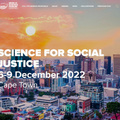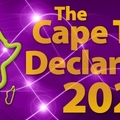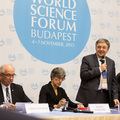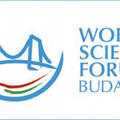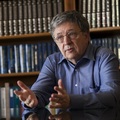The biologist Anne Glover, who in 2012 assumed the important task of being the first person to hold the position of chief scientific adviser of the President of the European Commission, argues that science should be "experienced" to approach people. The Scottish believes that young scientists, serving as models, are fundamental to renew in adolescents the interest in scientific themes, and that more communication is essential to encourage them to pursue careers such as engineering, chemistry and biology, with lack of professionals. Glover, who is in Rio de Janeiro to attend the World Science Forum, said, in an exclusive interview to ABC, what are the biggest challenges in European scenarium of science, technology and innovation. The scientist, who claims to have "the most fun job in the world", also defends greater cooperation between Brazil and Europe.
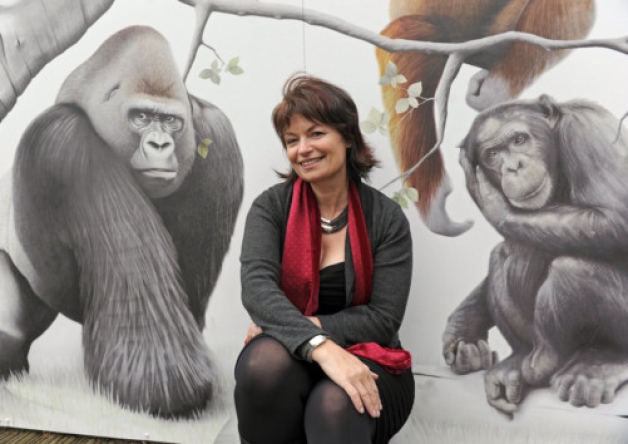
- Since 2012, you are the Chief Scientific Adviser to European Comission's president José Manuel Barroso - an experience you have had before in Scotland. What are your greatest responsibilities?
In Scotland, as well as in the European Commission, I was the first scientific adviser - before, this position did not exist. I assumed this post in 2006, when the Scottish government realized that science was very important to the country. As I had to start from "nothing", it was a very difficult job, but in the European Commission, the challenges are even greater. The reason is that, in Scotland, I persuaded the Prime Minister about policy making and he said "ok , let's do it". In the European Commission , it is necessary to reconcile the views of 28 members . Our work includes the use of science as a basis for the policy making, maintain an updated database regarding these policies and develop a global network of scientific advisors. Currently, we have only three in Europe - in the UK , Ireland and the Czech Republic . But other states are beginning to appoint theirs, and there is a movement to do this globally. The advantage of this network is to discuss important issues like climate change and food security. Politicians are realizing the importance of this.
- You say that the enormous cultural and linguistic diversity of the European Union is your biggest strength, but also a challenge to your work. Which difficulties those differences bring into decision-making about science policies?
In Europe, we are all friends, we know each other but we are very different. For example, some countries, for historical or cultural reasons, may be against some kind of technology. I need to be aware of this situation and deal with it. But life would not be fun without these challenges! The best way to overcome these differences is always communicate people about science.
- The research from European Union Report 2009 shows that, between young people, demand for scientific careers has declined dramatically, but is increased in poor countries. How do you explain this phenomenon?
I believe that Europeans are too "comfortable". In poor countries, people see science as an opportunity. In rich countries, they do not have the same difficulties and lost sight of what is important. However, the smartest people think about scientific careers or at least understand the scientific method. It is important to think about ways to engage people in science. For example, in Europe as well as in Brazil, there are not enough engineers, perhaps because people do not understand what engineers do . Many people think "I do not want to wear a suit and get my hands dirty". Engineering is a link between knowledge and economy, a worthwhile and exciting profession. Few people know that in the UK, for exampl , engineers earn more than lawyers . But people know what lawyers or doctors do and they don't have any idea of what a physicist, chemist , or biologist does - they imagine they are people in white coats, no friends, that stay in the lab all day. This is why more communication is necessary. I usually think: "Scientists are the funniest people on the planet, why you don't want to be part of it?".
- Exactly: in an interview published by "Herald Scotland", you affirm that "you don't have to make science fun, because it already is". How can we make science more accessible, specially for young people?
A way to attract people is science centers, museums, galleries, scientific exhibitions. In these environments, they can experience the science, which is a living thing. Chemistry, for example, is made of reactions, explosions, and we need to experience it, let the kids get their hands dirty with science. These centers are important, but even in universities and laboratories it is essential to create a link with local schools. The role of young scientists is also fundamental. This is because children at the age of 12, 13, get excited with science, but at puberty they begin to find it all bullshit. So we need to create strong models from young scientists to attract them.
-You defend the importance of women's role in science and technology. We have seen some initiatives that stimulate women's participation in this field, like L'Oréal-Unesco-ABC's "For Women in Science" award. How to encourage a greater contribution of women?
Again, the models are important. If you are a young woman and sees another ordinary woman, like you, who is a successful scientist, you think "I can do that too". Personally, I strongly defend a greater participation of women in science. They deal with problems differently and add much value to laboratories. They also communicate more easily. I am not against men - by the opposite, partnerships are very good. Environments with men and women are much richer. To succeed, a modern society needs science, technology, engineering, and it has to have the best minds of both men as women. We can not ignore 50% of the population.
- And how is your work as a researcher?
I research how we respond to stress at the molecular level. If I have cancer, I'm having chemotherapy, which is designed to kill cancer cells. However, this treatment also stresses normal cells. In this study, we pre-condition normal cells so that they are not affected by stress. We use techniques to see which genes are activated when the organism is stressed. My science is still very important to me, keeps me from going crazy! Despite having little time to devote myself to it, I still keep my lab.
- You are in Brazil participating in the World Science Forum. What is the importance of this event and what are your personal expectations?
I'm having the chance to meet scientists from all over the world, people of science academies and other institutions, it is a great conference. The interaction between all these organizations is very interesting and unusual, there are not other opportunities for that. And, being in Brazil, there are many people from South America, a region that I have much interest in how things work.
- How can Brazil learn from European Union's experience in science, technology and innovation? On the other hand, in which ways can Brazil inspire Europe?
The Lattes system is a great example for the European Union. It is amazing that scientists can know what each one is doing, it is a phenomenal way to connect them. We need to implement something similar in Europe. In relation to Brazil, hopefully we can strengthen relationships and create joint projects such as the construction of the European Southern Observatory`s Extremely Large Telescope. Brazilian astronomy is very impressive, and bring that experience would be great.
(Repórter especial Clarice Cudischevitch para Notícias da ABC)


